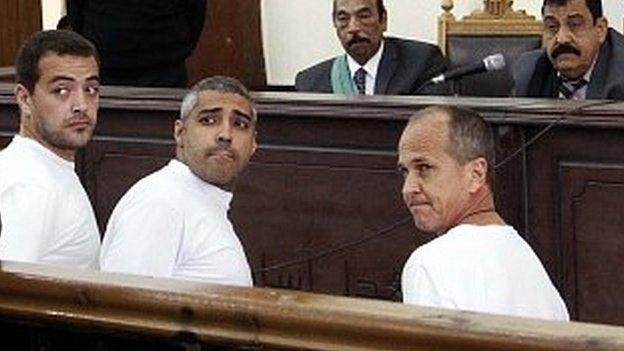Egypt President Sisi 'will not interfere' in al-Jazeera case
- Published
.jpg)
"The case is unjust," BBC Director of News James Harding told the gathering
Egypt's president has said he will not "interfere" with the judiciary over the sentencing of al-Jazeera journalists in Cairo, which triggered global outrage.
"We must respect judicial rulings and not criticise them even if others do not understand this", Abdul Fattah al-Sisi said.
A court in Cairo found Australian Peter Greste, Mohamed Fahmy and Baher Mohamed guilty of spreading false news.
The trio had denied the charges and are expected to appeal.
Earlier, Australian Foreign Minister Julie Bishop told the BBC that Canberra would work with the Egyptian government to try to secure Mr Greste's release "as soon as possible".
Father Juris Greste: "We are devastated, shocked and dismayed at this finding"
"We support Egypt's transition to democracy, but that also includes freedom of speech and press."

Al-Jazeera trial
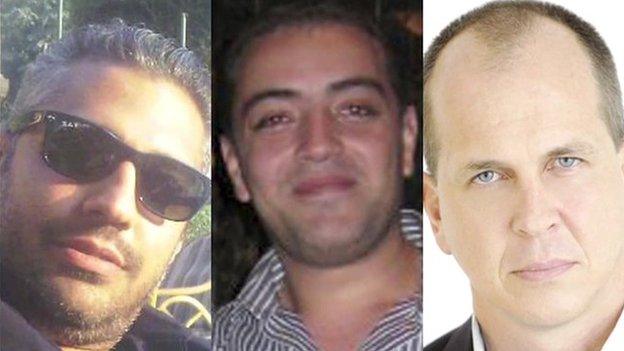
Defendants included al-Jazeera's Cairo bureau chief, Mohamed Fahmy, who is Canadian-Egyptian, Egyptian producer Baher Mohamed and Australian correspondent Peter Greste
They denied charges of spreading false news and supporting the Muslim Brotherhood
The three men were seized in a raid at a Cairo hotel on 29 December and have been held at Cairo's Tora prison
The court tried a total of 20 people, including nine al-Jazeera employees

Ms Bishop also ruled out imposing sanctions on Egypt, saying it was "not helpful at this stage".
Mr Sisi was elected last month, vowing to tackle "terrorism" and bring security.
The retired field marshal overthrew President Mohammed Morsi last July amid mass protests against his rule.
He has since been pursuing a crackdown on Mr Morsi's Muslim Brotherhood, which urged a boycott of the 26-28 May elections. Liberal and secular activists also shunned the poll in protest at the curtailing of civil rights.
'Unjust verdict'
Monday's jailing of the reporters has been condemned by media organisations and politicians around the world.
Australian Foreign Minister Julie Bishop: ''We will continue to make representations at the highest level within the new Egyptian government''
In London, BBC staff were joined by colleagues from other news organisations in a one-minute silent protest outside New Broadcasting House in London.
The protest took place at 09:41 BST (08:41 GMT) - exactly 24 hours after the sentencing in Cairo.
"The verdict is unjust, the case is unfounded," the BBC's News Director James Harding told the gathering.
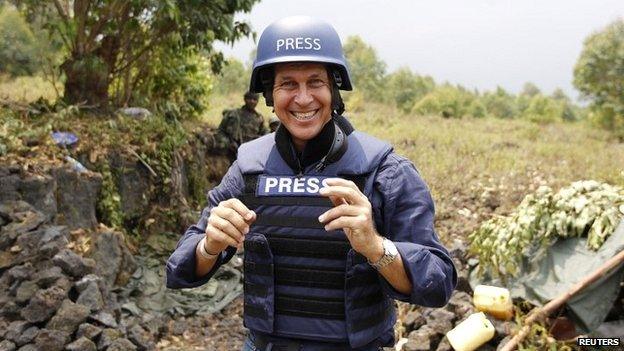
Peter Greste, a former BBC reporter, has been one of Australia's most high-profile foreign correspondents
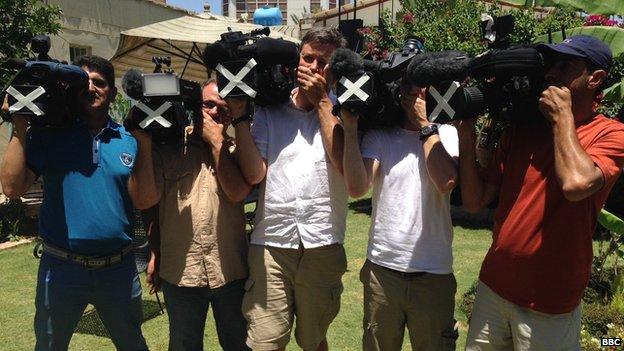
Solidarity protests were also held by BBC journalists around the world, including in Baghdad, Iraq
He added that journalists around the world "have to stand together" for reporters being imprisoned for simply doing their job.
Mr Harding added that journalists would be sending a letter to the Egyptian president, calling him to intervene.
'Foreign interference'
The father of Mr Greste told reporters in Brisbane that the family was "devastated" and "shocked" by the verdict.
"This is a very dark time, not only for our family but for journalism generally," Juris Greste said, describing the ruling as a "slap in the face" to "all fair-minded people around the world".
"Journalism is not a crime, or you should all be behind bars,'' he added.
But Mr Greste's parents were reluctant to criticise the Egyptian judicial system, reports the BBC's Jon Donnison in Sydney, aware that might hinder the ongoing diplomatic efforts to put pressure on the Egyptian government.
The BBC's Bethany Bell in Cairo says that while the case has been condemned around the world, it has been presented differently by the Egyptian media.
While reporting the verdict prominently, the traditional media have not criticised it, and, echoing the official line, have expressed rejection of "foreign interference" in Egypt's affairs.
However, the story has been met with shock and outrage on social media.
Al-Jazeera, which is based in Qatar, was banned from operating inside Egypt after being accused of broadcasting reports sympathetic to former President Mohammed Morsi and the Muslim Brotherhood. Al-Jazeera has consistently denied the allegations.
Eleven defendants tried in absentia, including three foreign journalists, received 10-year sentences. Two of the journalists convicted in absentia are British.
- Published23 June 2014
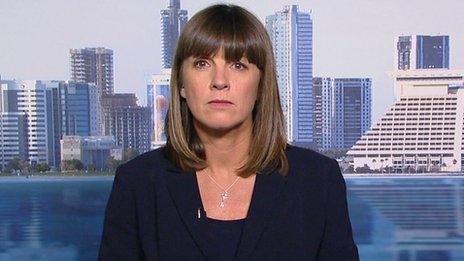
- Published24 June 2014
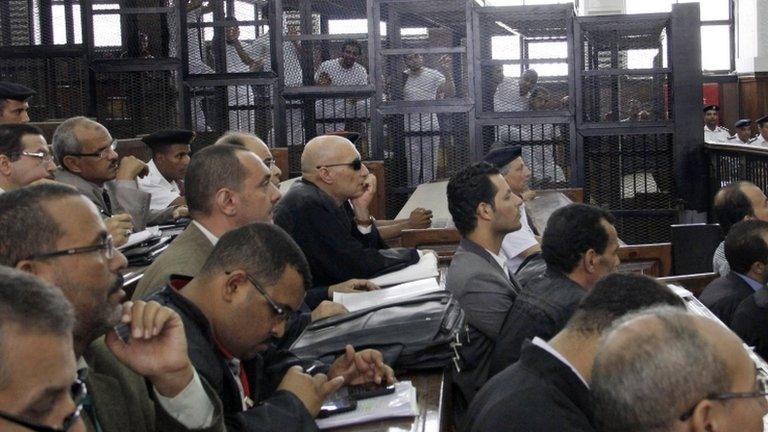
- Published24 June 2014
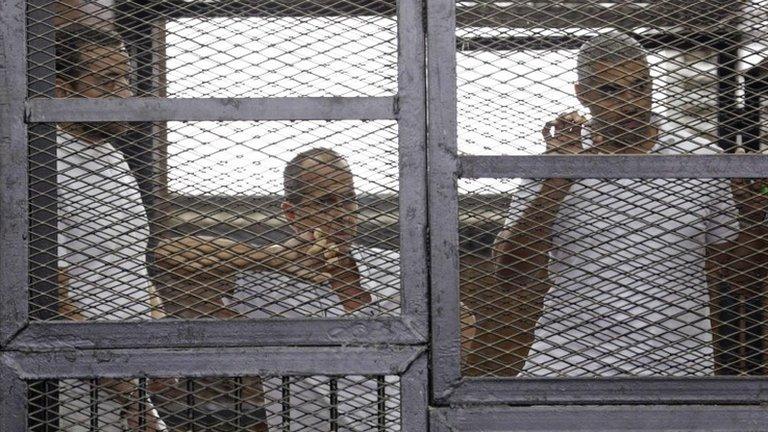
- Published13 February 2015
